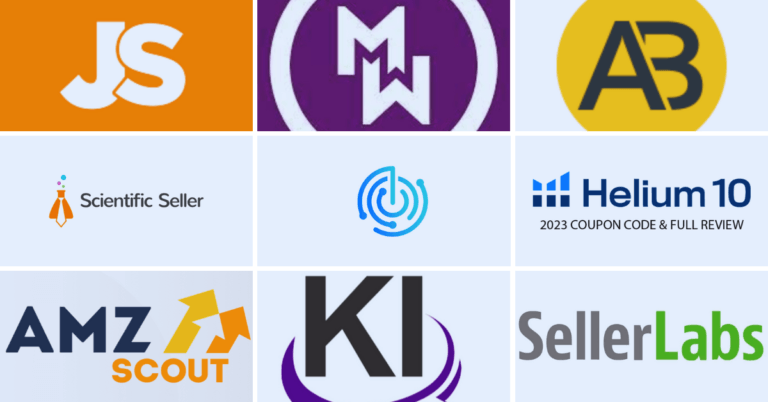How To Start With Keyword Research

How To Start With Keyword Research
So, What Exactly Is Keyword Research?
Keyword research is the act of locating and evaluating search phrases that people type into search engines with the intention of utilizing the information for a particular purpose, such as SEO or general marketing. Keyword research may reveal queries to target, as well as their popularity, ranking difficulties, and more.
What Is The Significance Of Keyword Research?
Keyword research may provide you with a lot of information about what your target audience is looking for on Google. The knowledge you get from these genuine search phrases may influence both your content strategy and your overall marketing plan. When performing internet research, people employ keywords to identify solutions.
As a result, if your content succeeds in getting in front of our audience as they do searches, you will see an increase in traffic. As a result, you should concentrate on such searches. Furthermore, we should design content around what people want to find rather than what we want to teach them using the inbound model. To put it another way, our audience has come to us. The process begins with keyword research.
Keyword Research Provides Several Advantages, The Most Common Of Which Are:
Insights Into Marketing Trends
Effective keyword research may provide you insights into current marketing trends and help you focus your content on themes and phrases that your target audience is looking for.
Increased Traffic
The higher you rank in search engine results for the keywords that best suit the content you post, the more visitors you'll draw to your website.
Obtaining Customers
If your company provides material that other business professionals are seeking for, you can fill that need and create a call to action that will guide them through the buyer journey from awareness to purchase.
You may address the questions that the majority of your audience wants to be answered by examining keywords for their popularity, search volume, and general-purpose. Keywords, on the other hand, have developed beyond Google's exact-match algorithms.
Topics vs. Keywords
We're hearing more and more about how much SEO has changed in the past ten years, and how irrelevant keywords have become to our ability to rank high for everyday searches. While this is accurate to some degree, it is a distinct approach in the perspective of an SEO specialist. Rather, it's about the keyword's purpose and whether or not a piece of content fulfills that goal.
However, this does not imply that keyword research is obsolete. Allow me to explain: Keyword research reveals what subjects people are interested in and, provided you use the correct SEO tool, how popular those topics are with your target audience.
Themes are the crucial word here; by analyzing keywords with a large number of monthly searches, you may select and categorize your material into topics on which you wish to write. These subjects may then be used to determine which keywords to hunt for and target.
Keyword Research Elements
When performing keyword research, there are three essential aspects to consider.
1. Usefulness
Google uses relevancy to rank content. This is when the term “search intent” comes into play. Only if your content matches the demands of the searchers will it rank for that term. Furthermore, your material must be the most relevant resource for the inquiry. After all, why would Google give your material a better ranking if it offers less value than other online content?
2. Supremacy
Google will give authoritative sources a higher weighting. That means you must do all you can to establish yourself as an authoritative source by adding useful, informative material to your site and promoting it to get social signals and backlinks.
Unless your material is extraordinary, you have a decreased chance of ranking if you're not viewed as an authority in the industry, or if a keyword's SERPs are stacked with heavy sources you can't compete with (like Forbes or The Mayo Clinic).
3. Volume
You may rank on the top page for a term, but if no one ever searches for it, your site will not get any traffic. It's like opening a store in a deserted town. The number of times the term is searched per month across all audiences is indicated by MSV (monthly search volume).

How To Find Keywords For Your SEO Campaign
I'm going to walk you through a keyword research method that will help you come up with a list of phrases to target. That way, you'll be able to develop and implement a solid keyword strategy that will help you rank for the search phrases that matter to you.
Step 1: Based On What You Know About Your Firm, Make A List Of Significant, Relevant Issues
Consider the subjects you want to rank for in terms of general buckets to begin this approach. You'll create roughly 5-10 subject buckets that you believe are relevant to your company, and you'll utilize those topic buckets to help you come up with particular keywords later on.
These are presumably the subjects you write about the most if you're a regular blogger. Perhaps they're the most often discussed issues in sales meetings. Put yourself in your buyer personas' shoes: what subjects would your target audience look for that you want your company to be discovered for?
Step 2: Add Keywords To Those Subject Categories
Now that you've decided on a few subject buckets to concentrate on, it's time to find some keywords that fit into those categories. These are keyword phrases that you believe are vital to rank for in SERPs (search engine results pages) since your target consumer is likely searching for them.
For example, if I were working for an inbound marketing software firm and the final subject bucket was “marketing automation,” I'd come up with a list of keyword terms I believe people would use to search for that topic.
The goal of this phase isn't to create your ultimate keyword phrase list. You merely want to come up with a list of terms that you believe prospective consumers could use to find material relating to that subject bucket. Later on in the process, we'll trim down the lists so you don't end up with anything too large.
Although Google is encrypting more phrases every day, determining which keywords your website is already being searched for is another clever technique to come up with keyword suggestions. You'll need website analytics tools like Google Analytics or the Sources report in HubSpot's Traffic Analytics product to perform this.
Sift through your organic search traffic bucket to see the terms visitors are using to find your website. Rep with as many subject buckets as you have. Remember that if you're having difficulties coming up with relevant search phrases, you can always ask your customer-facing colleagues in Sales or Service what terms their prospects and customers use, or what queries they often have. These are often excellent places to begin your keyword research.
Step 3: Recognize How Intent Influences Keyword Research And Analyze The Results Accordingly
User intent is now one of the most important variables in your ability to rank effectively on search engines like Google, as I said in the previous section. Today, it's more crucial that your web page solves the issue that a searcher was looking for than merely carrying the phrase.
So, how does this influence your keyword research? It's all too easy to accept keywords at face value, yet they might have a lot of distinct meanings underneath the surface. Because the motivation behind a search is so crucial to your ranking potential, you must be extra cautious when interpreting the keywords you target.
Let's imagine you're writing an article and you're looking for keywords like “how to start a blog.” The term “blog” might refer to a blog post or the blog website itself, and the purpose of the searcher will impact the path of your content. Do you want to learn how to create a blog post from scratch?
Or do they want to know how to set up a website domain just for blogging? If you're just targeting folks who are interested in the latter, you'll want to double-check the keyword's purpose before using it.
It's a good idea to put a term into a search engine yourself to check what kinds of results show up to verify what a user's purpose is in a keyword. Make sure the information Google is displaying is closely connected to what you want to develop for the term.
Step 4: Perform A Search For Relevant Phrases
When doing keyword research, you may have previously considered this step. If not, it's an excellent method to get those lists filled up. If you're having trouble coming up with additional keywords for a given subject, look at the related search phrases that display when you type in a keyword into Google.
You'll get some recommendations for searches similar to your initial input if you key in your phrase and scroll to the bottom of Google's results. These keywords could give you some suggestions for other keywords to consider.

Step 5: Make Use Of Keyword Research Tools
Based on the concepts you've developed so far, keyword research and SEO tools may assist you to come up with additional keyword ideas based on exact match and phrase match keywords.
Keyword Research And Selection For Your Website
Once you've decided the keywords you want to rank for, it's time to narrow down your list to the ones that will work best for your plan. This is how:

Step 1: Reduce Your Keyword List Using Google Keyword Planner
You may acquire search volume and traffic predictions for phrases you're considering using Google's Keyword Planner. Then, using the data from Keyword Planner, utilize Google Trends to fill in some of the gaps. Use the Keyword Planner to highlight any phrases on your list that have far too little (or far too much) search traffic and don't contribute to the healthy balance we discussed before.
But, before you remove anything, go to Google Trends and look at their trend history and forecasts. You may see whether certain low-volume phrases, for example, are something you should invest in now and enjoy the advantages later. Or maybe you're simply staring at a long list of phrases and need to condense it somehow… Google Trends may assist you figure out which keywords are growing higher and so need greater attention.
Step 2: Focus On Low-Hanging Fruit First
Prioritizing low-hanging fruit is focusing on keywords for which you have a good possibility of ranking based on your website's authority. Large firms often target high-volume keywords, and since these brands are already well-known, Google rewards them with authority across a wide range of subjects. You might also think about keywords with low competition. If no one else is vying for the top place, keywords that don't already have numerous articles vying for it may afford you the top slot by default.
Step 3: Look Up The Monthly Search Volume (MSV) For The Terms You Selected
Checking MSV can assist you in writing material that revolves around what people desire to learn. The amount of times a search query or phrase is put into search engines each month is known as monthly search volume. Searchvolume.io and Google Trends are free tools that may help you uncover the most searched terms across relevant keyword clusters.
Step 4: When Choosing Keywords, Consider SERP Characteristics
If applied appropriately, Google will highlight many SERP feature snippets. A simple method to learn more about them is to search for the terms you want and see what comes up first. We'll describe the different sorts of SERP highlighted snippets below for a fast overview.
Image Collections
Image packs are search results that appear as a horizontal row of photos in a natural order. If an image pack exists, you should compose an image-heavy article to be included in it.
Snippets From Paragraphs
Featured snippets, also known as paragraph snippets, are brief text snippets that display at the top of Google search results to provide fast solutions to frequently asked questions. Understanding the searcher's objective and responding with brief, concise responses will help you get the spot.
Snippets Of Information
List snippets, also known as listicles, are snippets created for blogs that outline how to accomplish anything from beginning to end – often for “How To” searches. Making postings with clear, precise instructions and layout will help you earn this position.
Snippets Of Video
Short videos that Google will show at the top of a search query page in lieu of text highlighted snippets are known as video snippets. If tagged with the appropriate keywords people are looking for, posting a video on both YouTube and your website may help you get this spot.
Step 5: In Each Bucket, Look For A Combination Of Head Phrases And Long-Tail Keywords
Head terms are keyword phrases that are normally shorter and more generic, ranging from one to three words in length depending on who you speak with. Long-tail keywords, on the other hand, are keyword phrases that are three or more words long. It's crucial to make sure you have a good mix of head phrases and long-tail terms in your keyword strategy, as this will help you achieve both long-term and short-term objectives. Because head phrases are searched more often, they are typically (but not always) considerably more competitive and difficult to rank for than long-tail terms.
Step 6: Look At How Your Rivals Rank For These Keywords
You don't have to do anything just because your competition is. Keywords are the same way. It doesn't imply a keyword is significant to you just because it is to your opponent. Understanding what keywords your rivals are attempting to rank for, on the other hand, is a terrific approach to help you re-evaluate your keyword list.
If your competition is ranking for the same keywords you are, it makes sense to focus on raising your ranking for them as well. However, don't overlook the ones that your rivals seem to be unconcerned about. This might be an excellent chance for you to gain market share on key phrases as well.
Understanding the difference between phrases that are more difficult due to competition and terms that are more realistic will help you maintain the same balance that the combination of long-tail and head terms permits.
Remember, the idea is to come up with a list of keywords that can help you achieve some early victories while simultaneously progressing toward larger, more difficult SEO goals.
You may wonder how you may find out what keywords your rivals are ranking for. Arel=”noopener” target=” blank” hrefs enables you to run a variety of free reports that show you the top keywords for the site you input, in addition, to manually searching for keywords in an incognito browser and seeing what places your rivals are in. This is an easy method to see what kinds of phrases your rivals are ranking for.
SEO Keywords To Use
Understand that there are no “best” keywords; just ones that your target audience uses often. With this in mind, it's up to you to devise a plan that will aid in page ranking and traffic generation. Relevance, authority, and traffic will all be factors in determining the optimum keywords for your SEO campaign. You want to uncover highly searched keywords that you can compete for depending on the following factors: – The degree of competition.
– Your capacity to create material that is of higher quality than what is already ranked.
You Also Have The Right Keywords For SEO On Your Website
You now have a list of keywords to help you concentrate on the proper subjects for your company and earn short- and long-term benefits. Re-evaluate these phrases every few months – once a quarter is a decent benchmark, but other companies like to do it more often. As your authority in the SERPs grows, you'll be able to add more and more keywords to your keyword lists to handle as you focus on sustaining your present presence and then expanding into new areas.
I trust you enjoyed this article on How To Start With Keyword Research. Would you please stay tuned for more articles to come? Take care!
JeannetteZ
Want to Learn How to Build Your Own Home-Based Online Business & Start Making Money Online From Your Comfortable Couch?
Try Wealthy Affiliate!
Your Opinion Is Important To Me
Thoughts? Ideas? Questions? I would love to hear from you. Please leave me your questions, experiences, remarks, and suggestions about How To Start With Keyword Research, in the comments below. You can also contact me by email at Jeannette@WorkFromAnywhereInTheWorld.com.
Disclosure
This post may contain affiliate links. As an Amazon Associate and other affiliate programs, I earn from qualifying purchases. Read my full affiliate disclosure.
You may also enjoy the following articles:
Wealthy Affiliate Review – Scam or Legit? The Truth Exposed
Best Types Of Coupons For Your eCommerce Store
How To Create Your Freelance Brand
Everything You Need To Know About B2B Websites








